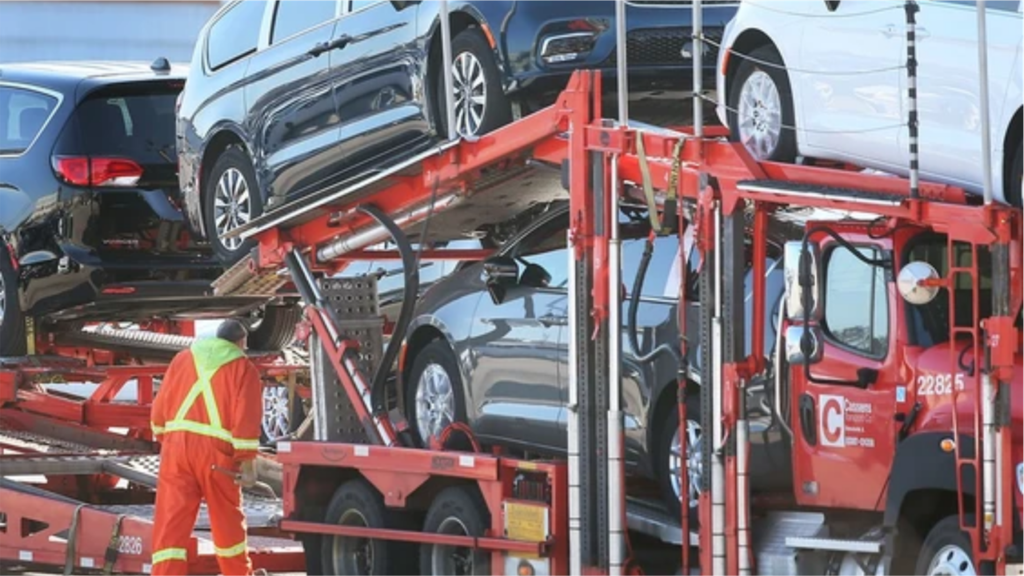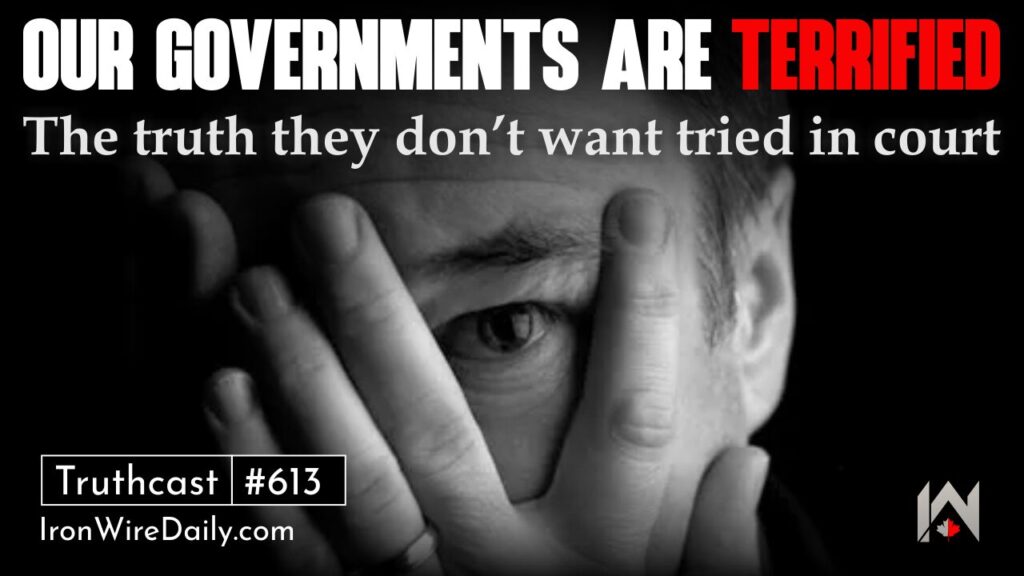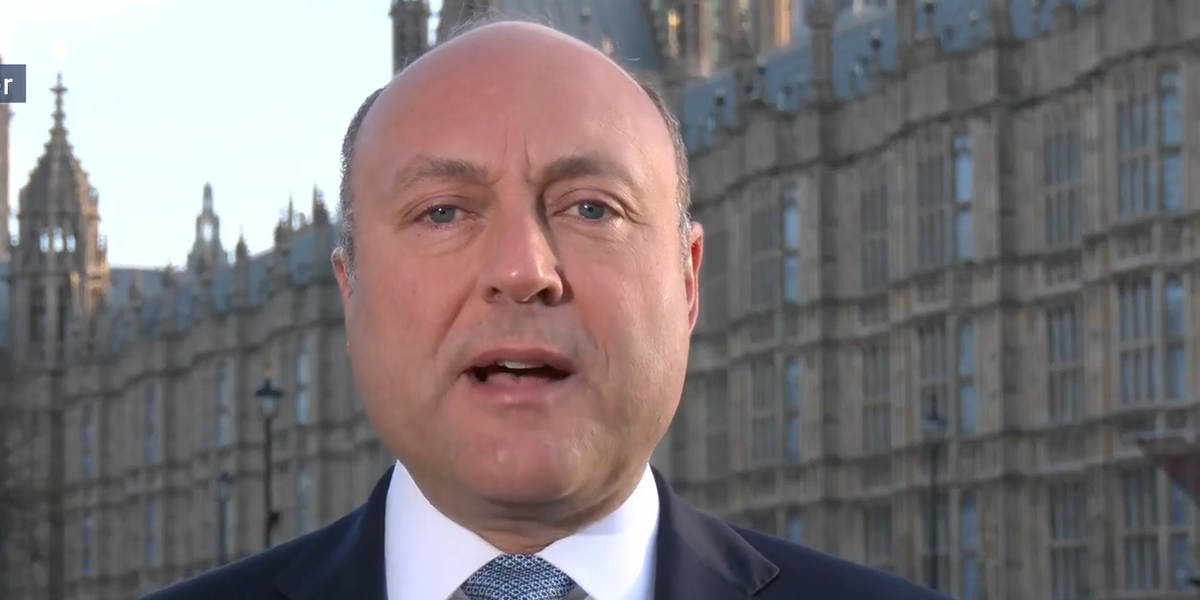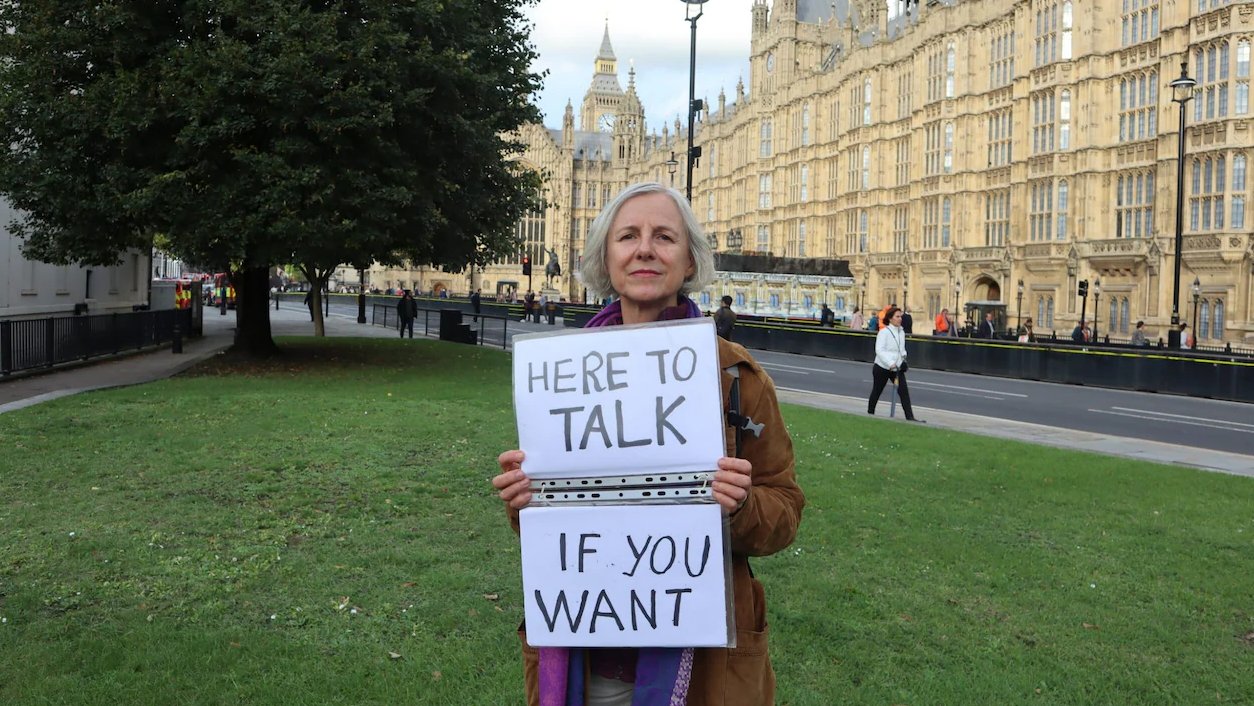The Swirling Vortex of Weaponised Lawfare
Like a bad ‘When a chicken walked into a pub’ type of joke, when activist litigants walk into a courtroom and meet injunction-happy judges, the result is a swirling vortex of weaponised lawfare. In discussing the current jurisdictional kerfuffle between the US federal executive and judiciary, I find it impossible to overlook the total failure of the courts to protect people’s rights, dignity, and liberty under comprehensive assault from the administrative state during the Covid years. I accept the possibility that this may colour my judgment on the controversy.
It has become sadly obvious in recent years that the gravest threat to the theory and practice of democracy is not the rise of populism with wannabe fascists and neo-Nazis as their seductive tribunes, but technocratic elites with barely concealed disdain for the political beliefs and voting behaviour of the ‘deplorables.’ Moreover, as the firewalls of resistance to populist advance crumble one by one under assault from enraged voters, the final frontier of elite resistance is the courts. The legal clerisy—lawyers, law professors, and judges—is part of the ruling elite and the last line of defence for safeguarding victories already won by social justice warriors in their long march through the institutions.
Judicial Fallibility
Unlike every other profession, is the judiciary infallible? Clearly not, else they would not have been complicit in the biggest violation ever of people’s liberties and freedoms during the Covid years. Every country with a credible rule of law every so often overturns wrongful convictions from the past. Among the best-known Australian examples are those of Lindy Chamberlain and Cardinal George Pell.
As a corollary, are judges individually infallible and free of any influence of personal prejudices, beliefs, and life experiences? Again, clearly not. If they were, then in every single verdict heard by a bench of judges, verdicts would be unanimous and we could save considerable time and expense by dispensing with layers of appeal. From Australia consider the case of Cardinal Pell once again. He was convicted by jury verdict, the conviction was upheld 2-1 by the state appeals court, but overturned unanimously by the High Court of Australia (our apex court). Same laws, same evidence, different judgments.
Is every judge a paragon of judicial integrity and competence? Not so. A few are corrupt or guilty of other acts of malfeasance. Many more, I suspect, are incompetent rather than dishonest or corrupt. Mechanisms for acknowledging incompetence are fewer and less frequently invoked than for detecting and punishing corruption and malfeasance. Yet, even the latter cannot always be relied upon.
There is an interesting scandal playing out in India even now. On the night of 14 March, the official residence of a judge of the Delhi High Court, Justice Yashwant Varma, went up in flames. Firefighters and police officers who rushed to deal with the conflagration discovered jute sacks of burnt-out cash. The Police Commissioner got in touch with the chief justice of Delhi High Court on the 15th to apprise him of developments, who in turn communicated the information to the Supreme Court of India. The Chief Justice of India established a three-judge panel to probe the matter and its report, which has been uploaded online (with redactions) in the interests of transparency given the intense public interest, substantiates that there are grounds for a full and proper inquiry. Justice Varma meanwhile has been transferred to another high court (against the protest of that court’s bar association) pending further investigations and action.
The hint of corruption would very likely have gone entirely undiscovered but for the fortuitous fire in the judge’s house. This in itself is an indictment of the inadequacy of oversight mechanisms for judges.
A final preliminary question: Unlike all other branches of government, is the judiciary collectively and are judges individually magically incapable of judicial overreach and in need of being put back in their lane? I suppose that such a perfect distribution of relative self-discipline among the branches of government is possible but, being an old cynic, forgive my scepticism. Not all judges have the necessary self-awareness and strength of character to avoid the temptation to abuse their powers and authority. On the contrary, the legal profession has a collective self-interest to expand the reach of its authority over all other sectors and, conversely, to protect itself from pushback by others.
A follow-up question is: How can the slow and deliberative process of judicial decision-making be reconciled with the need for sometimes urgent action by the executive? The judiciary is habituated into its own sequence and pace of actions. Thus for judges, the ultimate acquittal of Cardinal Pell by the High Court of Australia was a triumph of judicial institutions and process. To ordinary mortals, the process itself was a harsh punishment, and the 405 days that the aging cardinal spent behind bars was a damning miscarriage of justice.
In other words, from the date of his indictment in June 2017 through two jury trials, a first failed appeal, the final successful appeal, release from prison in April 2020, and death in January 2023 still unable to fully cleanse the taint of paedophilia, more than half of Cardinal Pell’s remaining time on earth was under malicious trial and punishment by a cadre of anti-Catholic Church activists out for blood. The nation demanded a scapegoat for the Catholic clergy’s historical sexual abuse of children. I write this not just as a non-Christian but as an atheist.
The Weaponisation of Lawfare and the Ideological Capture of Jurists
In the US, more than 125 lawsuits were filed in Trump’s first two months challenging his policies, mostly against efforts to cut government departments and agencies down to size. In just one day recently, district judges ordered a halt to Trump’s executive orders to dismantle USAID, the reinstatement of DEI grants by the education department, a pause on deportation flights of alleged Venezuelan gang members, and a stay on the ban of transgender members of the military. Was Trump wrong or exaggerating to say ‘These Judges want to assume the Powers of the Presidency,’ the latter must sometimes ‘act quickly and decisively,’ and the US ‘is in serious trouble’ if the Supreme Court refuses to ‘fix this toxic and unprecedented situation’ urgently?
An article in the Journal of Legal Studies in January 2018 noted that, based on donations to party, a minority of 35 percent of American lawyers and a mere 15 percent of over 10,000 law professors were conservative in 2012. The three authors of the study noted that at the time, conservatives controlled all three branches of the federal government and more than two-thirds of state governorships and legislative assemblies, while voters identifying as conservative outnumbered liberals 35-24.
The pathology of ideological uniformity and misalignment with public sentiments has worsened considerably since then. Derek Muller, a law professor at Notre Dame University, examined political donations by law professors by political party (such information is public knowledge in the US) from 2017 to early 2023. To the surprise of no one, they skew overwhelmingly towards Democrats. Of the 3,284 law faculty donors in this five-year-plus period, 95.9 percent gave money only to Democrats, 2.7 percent to Republicans, and 1.5 percent to both parties. When broken down by dollar figures, 92.3 percent of donations went to Democrats and 7.7 percent to Republicans. Of the more than 100 institutions Muller looked at, every single one had more registered Democrats than Republicans in the law faculty, mostly by large margins.
Does anyone seriously believe this does not lead to an ideological disconnect between the legal-judicial clerisy in courtrooms and on the benches, and the American people?
District Judge James Boasberg ordered a halt to the deportation of over 250 illegal Venezuelans with links to the Tren de Aragua gang, a federally designated foreign terrorist organisation. Judge Boasberg is part of the Washington bubble. DC voted for Democratic candidate Kamala Harris over Trump by an overwhelming margin of 93.6-5.5 percent (with 0.9 percent write-ins). Flights already in progress were told to return. This did not happen because, the government says, the planes were already in international airspace and so the directive not to ‘remove’ them from the US had been rendered moot.
A senior Trump adviser, Stephen Miller, said a district court has ‘no ability to in any way restrain the President’s authority under the Alien Enemies Act.’ Regardless of legal scholars’ learned opinions, most voters will likely side with the administration that the scale of migration across the southern border in the Biden years does meet the threshold of ‘an invasion or predatory incursion’ under the Act, justifying their arrest and removal as ‘enemy aliens.’ Trump called Boasberg a ‘troublemaker and agitator’ Obama judge who ‘should be IMPEACHED!!!’
Critics warned of an ‘assault on the entire constitutional order in America.’ In a rare public rebuke, Chief Justice John Roberts (who stayed silent when a roll call of Democrats called for impeachment of judges) said ‘For more than two centuries, it has been established that impeachment is not an appropriate response to disagreement’ on judicial decisions. Instead, ‘the normal appellate review process’ provides the proper remedy. On 26 March, the US Court of Appeals for the DC Circuit upheld Boasberg’s temporary stay of deportations by a 2-1 decision.
Roberts ignores a basic cause of the looming constitutional crisis; namely, the absence of mechanisms to ensure the judiciary stays in its own lane even while admonishing the executive to stay in its lane. Separation of powers imposes limits to the jurisdictional overreach of all three branches. The judiciary cannot be the sole arbiter of its own reach and limits as well as that of Congress and the president. Who then holds the judiciary accountable to its limits? National injunctions inevitably encourage activists to lodge a case in a jurisdiction and with a judge likely to be sympathetic. They also ‘tend to force judges into making rushed, high-stakes low information decisions,’ Justice Neil Gorsuch noted in a 2020 Supreme Court judgment.
The assumption that no judge ever acts in an ideologically partisan way is demonstrably false. Events in the real world move much faster than the glacial pace of judicial proceedings. This means the Supreme Court too must move faster and decisively to rein in out-of-control judges. An alternative interpretation to the alarmist ‘constitutional crisis’ therefore is that Trump’s actions may help to restore constitutional integrity and democratic accountability by stripping power and resources from the bloated administrative state and returning them to Congress and the executive.
National injunctions from district courts are rare when Trump isn’t involved. According to an article in the Harvard Law Review last year, there were a total of 127 from 1963 to the start of 2020. More than half (64) were against the first Trump administration. In the period covering the Bush Sr. and Obama presidencies, plus Biden’s first three years, there were 32. In February alone this year there were 15 against Trump II, according to a Justice department filing in the Supreme Court.
Judge Boasberg had earlier given a get-out-of-jail-free card to FBI lawyer Kevin Clinesmith, who had altered an email in order to get a warrant from the Foreign Intelligence Surveillance Act (FISA) court for surveillance of Trump campaign adviser Carter Page. This was the prelude to the Russia collusion hoax that severely hobbled Trump I. Boasberg sentenced Clinesmith to probation rather than jail. He also meted out controversial sentences to protestors at the US Capitol on 6 January 2020 and ordered Mike Pence to testify before the grand jury investigating Trump’s role in those riots.
Given the composition of the Senate, any effort to impeach Judge Boasberg isn’t feasible as a political proposition. That is different from assessing the legality of the action. Impeachment can be abused when wielded as a weapon or function as a guardrail against judicial abuses. An isolated bad decision can be handled by the normal appellate review process. A pattern of rulings that gives rise to an apprehension of bias can be an impeachable offence. Moreover, the crisis has intensified to this point because of the Supreme Court’s institutional timidness-cum-cowardice.
Roberts has previously expressed concern with the ‘institutional legitimacy’ of the federal judiciary. A predictable consequence of his implicit scolding of Trump was to embolden activist judges and NGOs in their efforts to delay and obstruct the president from implementing his voter-approved policy agenda. For, contrary to his assertion, the appellate process has not been working efficiently. The Supreme Court needs to step in fast to rein in judicial overreach by district court judges and adopt orderly systems of adjudication of urgent matters.
Utah Sen. Mike Lee (R-UT) has proposed a law requiring a three-judge panel from different circuits—two district judges and one court of appeals judge—to rule on challenges to presidential orders, with the possibility of appeal directly to the Supreme Court. This might not be the best formula but does seem like an improvement on the current flawed system.
The Pathology Is Not Restricted to the US
In February 2020, Australia’s High Court decided in a controversial 4-3 split verdict in the Love v Commonwealth case that an Aboriginal Australian who is not in fact a citizen of Australia cannot be considered an ‘alien’ under the constitution. Accordingly, unlike non-Aboriginal people living here who are not citizens, Aboriginal Australians
cannot be deported even if convicted of criminal offence. Apparently they retain some mystical inalienable connections to the land and country.
It might help readers to understand how and why this strange reading of the constitution might have come about by considering a current controversy involving one Australian law school. Over the last couple of weeks, the Australian has featured a series of articles on racial and gender indoctrination by Macquarie University’s law school courses, on pain of failing grades for wrongthink.
Some of these were written by students of that school who opted for anonymity in order to avoid retribution. Several of the descriptions for the PhD in law are incoherent and grammatically challenged. Often the units have nothing whatsoever to do with the core subject of the course for which they have enrolled. Some of tomorrow’s judges will be graduates of these schools. Can they be expected to apply the law free of indoctrinated prejudices?
In a neat closing of the circle, one unnamed student wrote that students are required:
‘to write an essay reflecting on how one or more of these critical legal studies theories was relevant to our PhD topic. And it was made quite clear to me that you were expected to include something like this in your thesis too, regardless of what the topic is.’
Queensland University’s James Allan, one of the very few conservative law professors in Australia, points out that when Prime Minister (PM) Boris Johnson prorogued the UK Parliament in order to get Brexit through, ‘all Remainer UK Supreme Court judges overturned three centuries of precedent and ruled’ his action to be unconstitutional even though the country has no written constitution. Despite this relatively recent precedent from the mother of parliamentary democracy, the Canadian Supreme Court upheld PM Justin Trudeau’s power to prorogue Parliament which he had done so that his government could avert a no-confidence motion before his party had had time to choose a new leader under whom to face the next election (since called for on 28 April).
Indeed, the fact that Mark Carney, who has never even contested let alone won an election, can be installed as PM is itself a sad indictment of the state of Canadian democracy. The leadership change has completely transformed the election dynamics. Doesn’t this amount to judicial interference in Canada’s elections?
As many Western democracies reach an inflection point on mass immigration, courts have become the place where democracies go to die. UK PM Sir Keir Starmer, possibly the strongest supporter of the rule of law among world leaders and himself a human rights lawyer, complained on 13 March about ‘A sort of cottage industry of checkers and blockers using taxpayer money to stop the government delivering on taxpayer priorities.’
Elite Contempt for the People
It’s hard to avoid the conclusion that judges increasingly reflect a more general elite contempt for the people that extends to the political choices made by people. Why does Trump horrify the rest of the Western democratic world so much? Well, we are beginning to understand. He says what he means, does what he says, and wants to accomplish what he promised to do in the one term of four years available to him. The dominant British and European approach to exercising power could not be more different. The established major parties treat citizens as absolute mugs, campaign in poetry to promise voters whatever they want, then, once in power, govern in prose to do whatever ‘we the elite’ want. The next election becomes an exercise in rinse and repeat.
Exhibit A of this treat-voters-as-mushrooms (keep them in the dark and feed them manure) strategy is PM Starmer with his loveless landslide in the UK. Exhibit B is wannabe Chancellor Friedrich Merz in Germany. Exhibit C, PM Anthony Albanese here in Australia. Like Germany and the UK, the starkest evidence of the reality of Uniparty in Australia is how PM Scott Morrison, having won an election on opposition to climate change lunacy, embraced the insanity of an artificial deadline for net zero at the Glasgow COP summit in October 2021 that was an equal opportunity offender to all voters and he duly lost the next election six months later. Yet, Leader of the Opposition Peter Dutton refuses to abandon it despite the rest of the world moving on, especially since Trump pulled the US out of the green energy scam.
In Australia and the UK, voters have gotten tax-and-spend, big government, mass immigration, and net-zero policies regardless of which party they chose at elections with their campaign promises. Centre-right parties in Germany’s new Bundestag got 49 percent of the vote compared to 28 percent for the Greens and SPD. Yet it’s the latter whose policies are being enacted by Merz, using a constitutional amendment passed by the outgoing Bundestag full of MPs already voted out. And all in the name of safeguarding democracy! I wonder what Vice President JD Vance has to say about this? In nearby Romania, democracy protection means cancelling the leading candidate from the presidential election, again vindicating Vance’s criticism of the corruption of democracy across Europe.
This builds on two articles published in the Daily Sceptic and the Spectator Australia magazine
-

Ramesh Thakur, a Brownstone Institute Senior Scholar, is a former United Nations Assistant Secretary-General, and emeritus professor in the Crawford School of Public Policy, The Australian National University.














